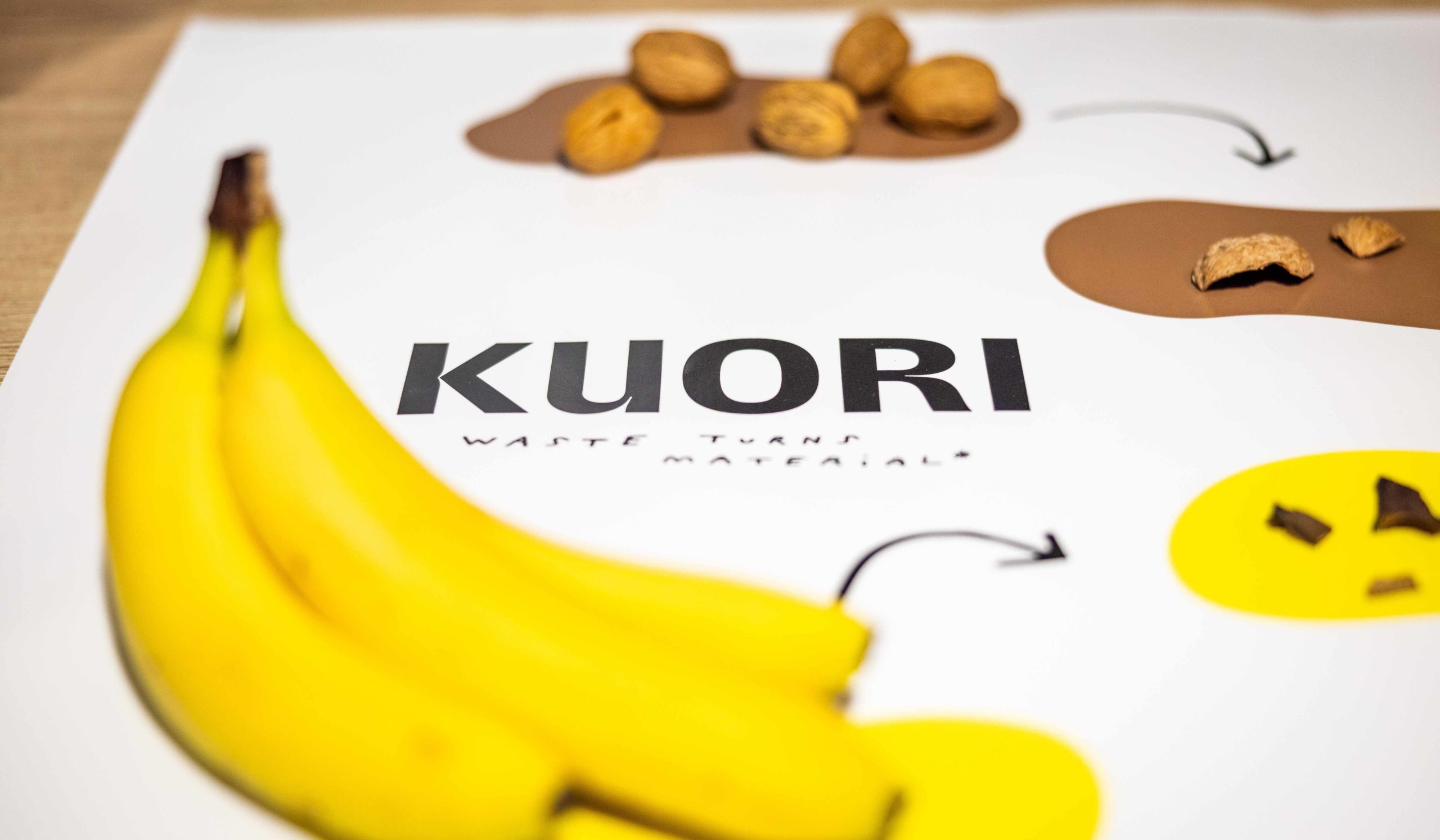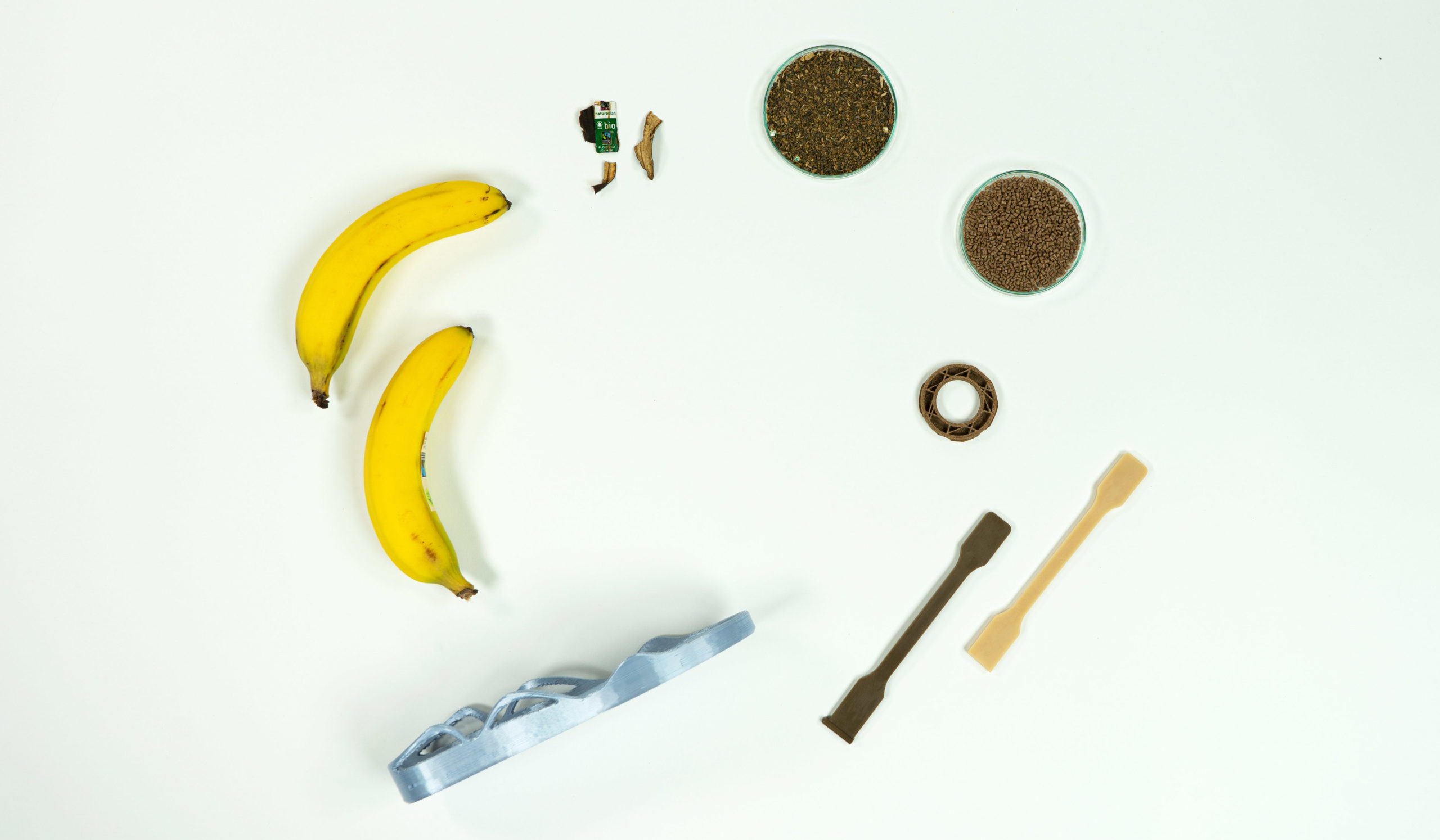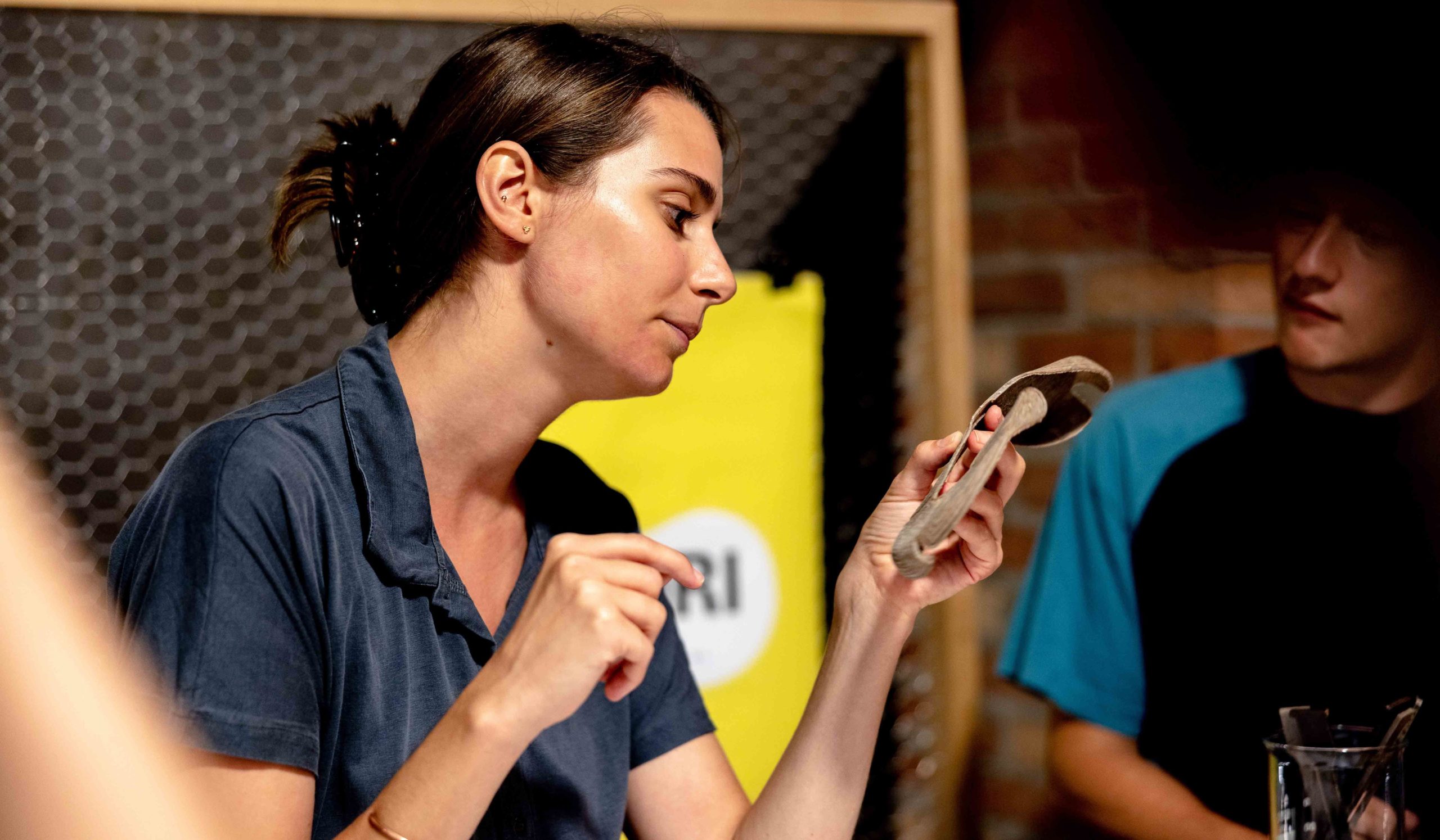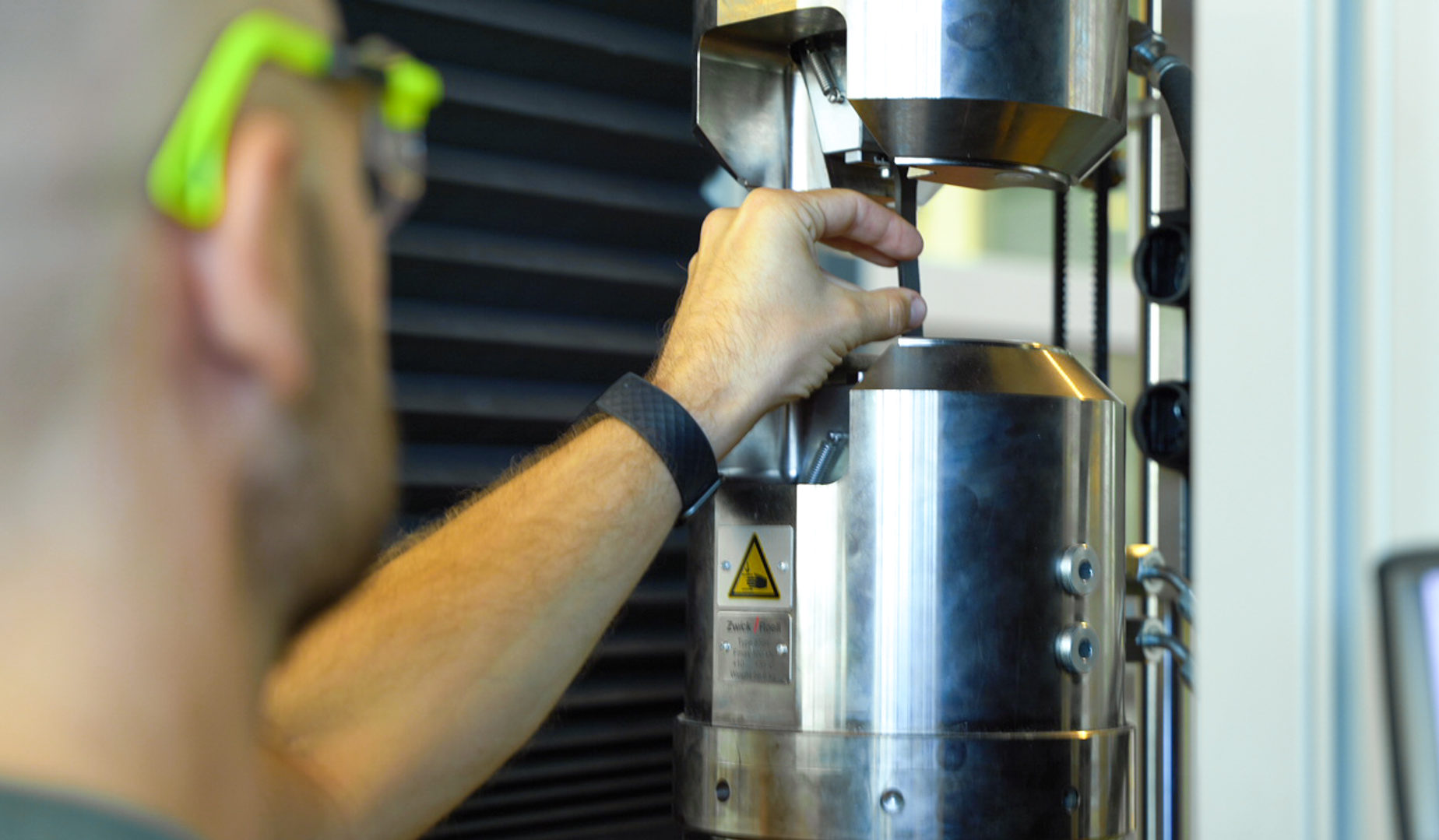21.03.2024
Appenzell | Switzerland
From Banana Peels to Shoe Soles
The Future is Biodegradable.
We release microplastics into the environment with every step we take. Around 100 grams per year are released from the soles of our shoes. Meanwhile, a third of every banana, its peel, is thrown into the trash and left unused.
One of KUORI’s own has found a solution to both problems. The cleantech startup from Basel transforms food waste such as nut or banana peels into a biodegradable elastic composite. The circular material is a sustainable alternative to synthetic rubbers and can replace conventional rubber materials.
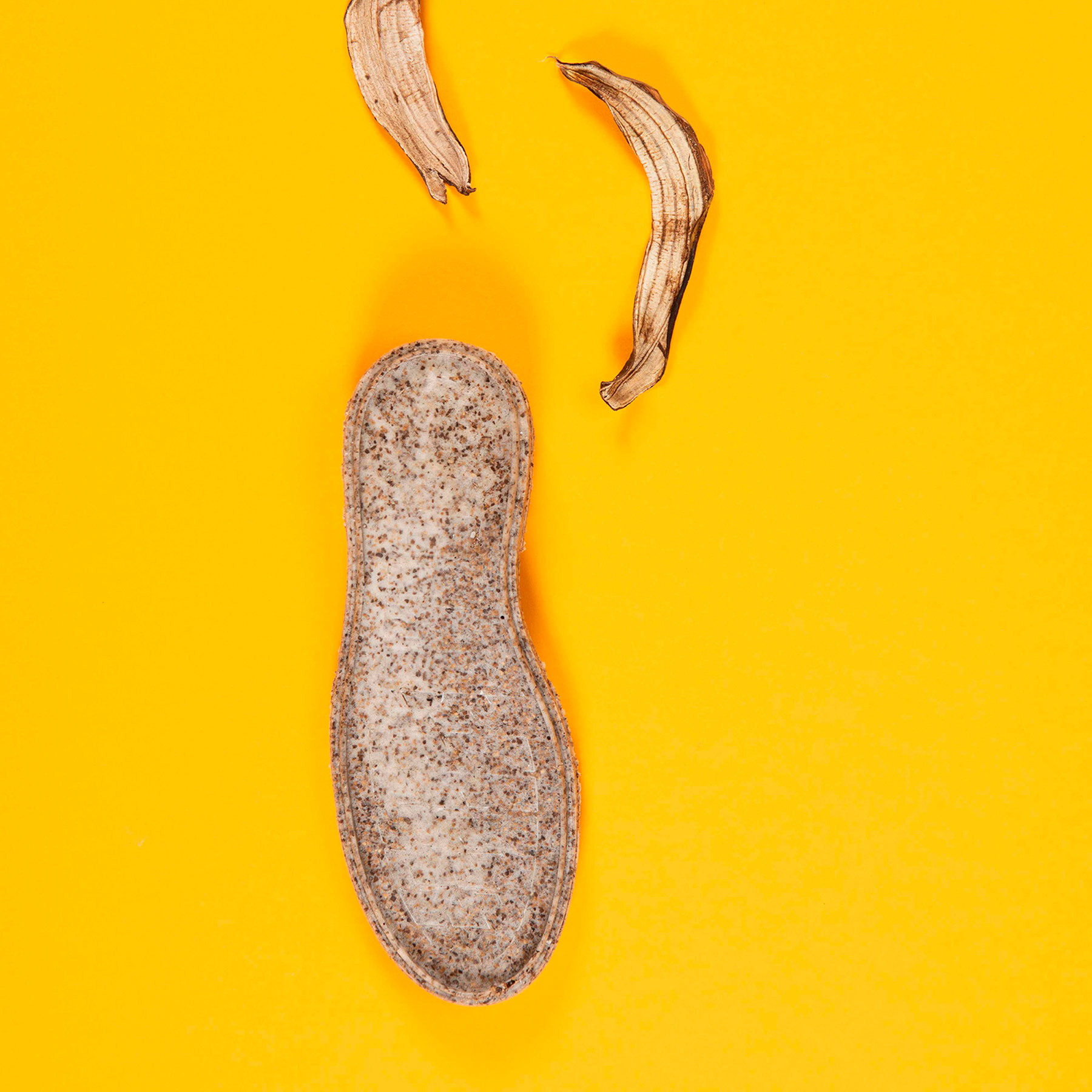
Banana peels as a solution to tackle the issue of plastic.
In the production process, KUORI recycles food waste and combines it with biopolymers and other ingredients. The resulting bio composite material is used to produce shoe soles. Unlike conventional plastic soles, KUORI’s soles do not produce microplastic debris.
“The circular economy enables us to harness the full potential of materials.”
Sarah Harbarth (CEO & Co-Founder of KUORI) and her team are convinced that we can only make the transition to a sustainable circular economy if we replace all materials derived from fossil fuels. However, it is not only in manufacturing that we need to harness the full potential of materials. That is why products made from KUORI’s materials can be recycled instead of ending up in the trash after their intended use. This produces valuable compost, biogas for generating energy and residual materials, which in turn can be used to produce new materials. By doing so, KUORI’s materials are reintroduced into the biological and technological cycle at the end of their lifespan.
